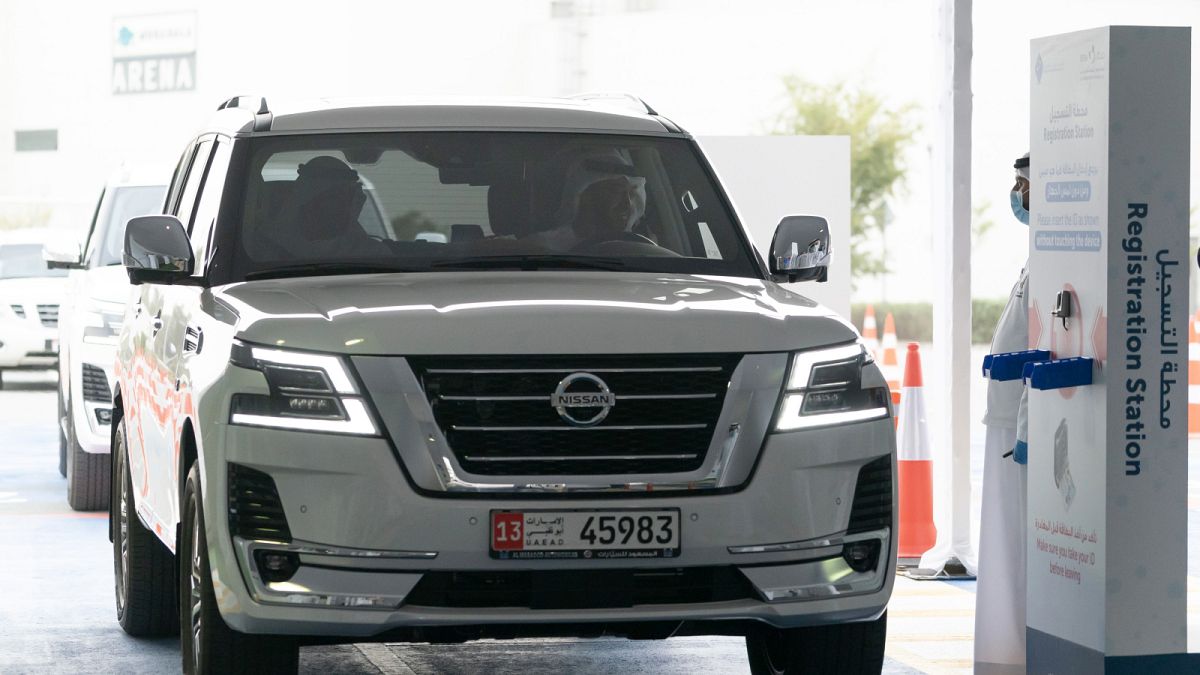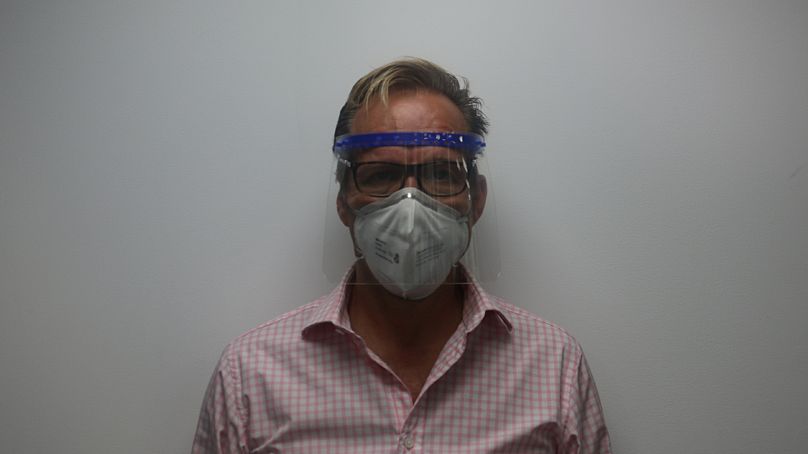Widespread, and seemingly drastic, actions have been implemented to curb the COVID-19 pandemic in many countries of the Middle East, which has an estimated total of 82,000 confirmed cases and more than 3,600 deaths since early April.
From virtual doctors to sanitizing robots, the UAE has taken innovative steps to quell the spread of the novel coronavirus among its seven emirates.
The country faced the first confirmed case of COVID-19 in the Middle East and North Africa in late January of this year, and since then, has witnessed nearly two thousand more according to the country’s official news agency.
To reduce these numbers, federal and local authorities implemented sterilization programs across the country in late March, to disinfect public spaces and transportation, and restricted non-essential travel between 8pm and 6am GST.
Dubai, known as an international event hub, imposed a two-week, continuous, lockdown on Saturday to conduct mass examinations across the city’s densely populated areas.
Municipalities across the emirates have also removed non-compliant sanitizing products from store shelves, and have fined, and also shut down, businesses hiking up prices to increase profits, off of sales of essential sanitizers and face masks.
The Khalifa University in Abu Dhabi, in partnership with Roche, a Swiss multinational healthcare company, published global guidelines to help with the care of cancer patients infected with the new coronavirus, according to the official Emirates News Agency
Scaling up detection
In late March, and in 14 days, a population-scale COVID-19 detection and diagnosis lab was built in the country’s capital, which has the capacity to conduct tens of thousands of examinations per day, according to the Beijing Genomics Institute (BGI), the co-founding company of the establishment along with Abu Dhabi based, AI and cloud computing company, Group 42 (G42).
The detection hub uses BGI diagnostic kits to mark SARS-CoV-2, the source virus of the COVID-19 disease, and utilizes the computation facilities of G42, home to the 26th most powerful supercomputer, according to the technology company.
Abu Dhabi also launched multiple, drive-through testing centres, where patients can receive results sent directly to their phones. The nearly $100 test is free for more vulnerable people, such as the elderly or pregnant women.
Building support
UAE residents are also stepping up to join the fight, including 3D-printer distributor and service provider, Lothar Hohmann.
The president of the Dubai based Precise Group, fathered the idea of using their traditional dental face shield products, to protect everyday people against the novel coronavirus.
Unlike traditional face masks, the plastic shield can be wiped down with a disinfectant for reuse, and protects the entire face, says Hohmann.
“We have to give our face a quarantine,” he says, so that people don’t infect themselves.
Before the pandemic, Precise Group was using about 19 printers to produce around 50 units per day, for dental facilities purchasing their products.
Today, the company manufactures up to 1,700 units a day on nearly 80 printers, with the help of people and companies who have lent their 3D printers.
“We wanted to be able to help our community, my home, during this pandemic,” says Hohmann, a businessman of German origin, who has lived in the UAE since 1994.
Given the limited number of face shields Precise Group can produce, Hohmann adds, the company has limited sales to medical facilities, and construction communities that buy in bulk.
For a batch of 500 face shields, each one costs about $7, and a replacement plastic shield can be purchased for less than 50 cents.
Extending abroad, Precise Group has a handful of printers producing masks in Riyadh, Saudi Arabia, and is distributing the face shields in Oman.
MENA measures
Widespread, and seemingly drastic, actions have been implemented to curb the COVID-19 pandemic in many countries of the Middle East, which has an estimated total of 82,000 confirmed cases and more than 3,600 deaths since early April, according to the Associated Press.
Across the region, countries such as Oman, Lebanon, and Iraq, put limits on travel, public events, and non-essential businesses.
Jordan went into a complete lockdown since March 14th, and Saudi Arabia closed off its holy cities of Mecca and Medina to millions of foreign travellers, in late February.
This month, Morocco issued pardons for more than 5,000 prisoners to protect the spread of the virus among inmates.
Adapting to circumstance
Lebanon, already facing the worst financial crisis in its history, is confronting a worsening medical supply while taking on the pandemic.
The country leaning towards bankruptcy, has high unemployment rates, a severe devaluation of their local currency, and in early March, said it would not pay back its foreign loans.
The government owes private hospitals, which make up a majority of Lebanon’s health capacity, an estimated $1.3 billion in unpaid bills since 2011, noted Sleiman Haroun, the head of the Syndicate of Private Hospitals, according to Human Rights Watch.
Operating under this ongoing pressure, is one of Lebanon’s leading private hospitals, the American University of Beirut Medical Center (AUBMC), which in March, and in ten days, equipped one of its buildings to test patients for COVID-19, and care for them.
Now called the Pandemic Evaluation Clinic and Center (PECC), the stand alone structure has 42 beds, and has tested about two thousand patients for the virus.
Yet the clinic struggles to get the necessary masks, test kits, and ventilators, says Dr. Ziyad Ghazzal, the medical centre director.
“There has been quite a bit of shortage in that regard, because of the financial crisis, capital control, the unofficial capital control, the devaluation of the Lebanese pound, altogether have really put a big strain on the healthcare systems in Lebanon,” he says, and that AUBMC has had to use its reserves to maintain its quality care for patients.
The centre has had to tighten the usage of electricity, cut down on overtime hours, and condense the number of patients their doctors see per day, to accommodate.
“We cannot keep haemorrhaging,” adds Dr. Ghazzal, who says the centre will never compromise on safety, and will have to restructure its finances to ensure its continued support during these difficult times.
Lebanon’s Ministry of Public Health has identified a total of about 541 confirmed cases of COVID-19, including 19 who have died as a result.

